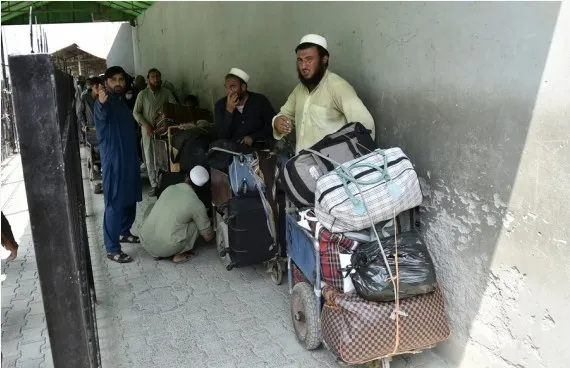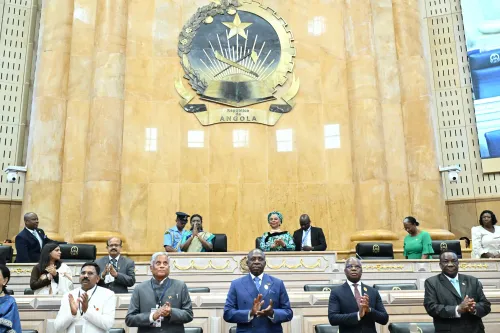What Are the Concerns of Deported Afghans from Pakistan and Iran Regarding Their Relocation?

Synopsis
Key Takeaways
- Deported Afghans face harsh living conditions.
- Urgent aid and support from the Taliban are needed.
- Many returnees struggle with unemployment and lack of shelter.
- Women and children are particularly vulnerable among returnees.
- Increased humanitarian assistance is crucial to prevent a crisis.
Kabul, Aug 4 (NationPress) Amid the ongoing deportation of Afghan nationals from Pakistan and Iran, numerous individuals recently returned to a Kabul camp have voiced their worries about their extremely challenging living conditions. These deportees have appealed to the Taliban regime and humanitarian organizations to assist in their relocation to different provinces, supply essential aid, generate job opportunities, and guarantee access to education for their children.
Returnees have reported enduring severe hardships due to unemployment, lack of shelter, and insufficient basic services. Adina Samadi, an Afghan national who was deported from Iran, urged the Taliban-led administration to take action regarding the situation of returnees, as highlighted by Afghanistan-based Tolo News.
Samadi remarked, "Our demand is for the government to address the situation of returnees. I traveled by vehicle, and during the journey, my mother fell ill. We encountered numerous challenges and reached late because for the past 20 days, we haven't even managed to find a vehicle to take us to our desired destination, such as Takhar."
Another deportee from Iran, Khyber, implored the Taliban to offer support to returnees as soon as possible, requesting housing and means for survival. He further added, "At this moment, we have no home; we’ve been sleeping here in the camp for four days, and we lack a place to go."
Zalmai, another deportee currently residing at the Kabul camp, mentioned that he is set to be relocated to Kunduz and expressed hope that adequate facilities would be available for returning migrants. "We implore the government to assist us. Right now, we have no shelter and are residing in this camp. We are uncertain if Kunduz even has a camp — and if it does, will they accept us? If not, we’ll have no choice but to sleep by the roadside with just a blanket."
Meanwhile, the Commission for Refugee Affairs has stated it is striving to provide facilities for returnees from neighboring countries, particularly Iran and Pakistan. Approximately 544 families have returned to Afghanistan through Islam Qala.
Migrant rights activists have called for increased efforts to ensure the effective integration of Afghan returnees into society, stating, "Current efforts remain inadequate. More decisive action is necessary to tackle existing challenges and guarantee the successful integration of returnees, which must be a priority for the Islamic Emirate."
On July 31, a report from the United Nations High Commissioner for Refugees (UNHCR) indicated that nearly 1.2 million Afghans have returned from Pakistan since September 2023. The report noted that many returning Afghans face dire conditions and called for urgent aid to avert a worsening humanitarian crisis.
Over 156,000 returnees, including 98,000 registered cardholders, have received humanitarian assistance since their return to Afghanistan. UNHCR highlighted that women and girls constitute about half of those receiving aid, while approximately 2.2 percent of all returnees are individuals with disabilities, according to Afghanistan-based Khaama Press.
The agency reported that more than 315,000 Afghans returned to Afghanistan in 2025 alone, including 51,000 who were forcibly deported by Pakistani authorities. The report indicated that many Afghan returnees confront bleak circumstances, lacking adequate housing, employment, and access to basic services in Afghanistan. Aid organizations have urged Afghan authorities and the international community to enhance support, warning that the influx of returnees could exacerbate the humanitarian crisis in Afghanistan without timely assistance.









